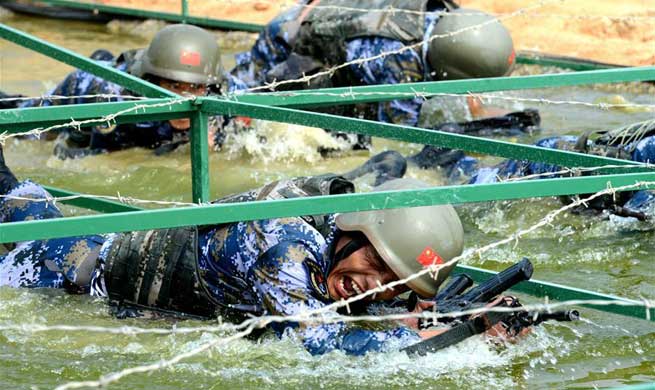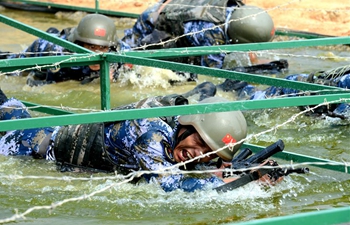BERLIN, Aug. 3 (Xinhua) -- The inland shipping in Germany might come to a partial standstill if the drought continues.
On the river Rhine, Germany's most important waterway, ships are only able to carry half or even less cargo as usual, the section responsible for shipping and waterways of the ministry of transport (GDWS) told the German press agency (dpa) on Friday.
Due to high temperatures and low water levels, the production facilities of chemical giant BASF cannot be cooled sufficiently and the production had to be lowered, the company announced on Friday. In order to comply with the requirements of the German authorities, BASF had to gradually reduce production in their Ludwigshafen plant. During drought, the re-introduction of industrial cooling water into the Rhine is legally limited.
"If the warm, high-pressure weather continues and no significant rain falls, water levels will continue to fall," said GDWS spokeswoman Claudia Thoma. "If necessary, shipping traffic may come to a partial standstill." Around 80 percent of all goods transported by inland navigation vessels are transported on the Rhine.
In 2016, the former German minister of transportation Alexander Dobrindt enacted the transport infrastructure plan 2030 with a total volume of 269.6 billion euros (312.4 billion U.S. dollars). To prevent restrictions on Germany's waterways as experienced now, 24.5 billion euros were intended for projects such as the deepening of the riverbed of the Rhine.
Sabine Juerschik, consultant for transport and logistics of the lower Rhine Chamber of Industry and Commerce (Niederrheinische IHK), told Xinhua that the water level in Germany's important industrial port of the city of Duisburg is currently heading towards the critical two-meter mark, compared to the average level of approximately 4 meters. At the moment, particularly large ships are already facing difficulties because of their draught.
"The capacities on the water are there to relocate the transport," Juerschik said, "for example, the cargo could be distributed among several ships with less cargo. This, of course, would involve higher costs. Especially in the current situation we have to think about alternatives."
According to the German water police, a tanker got stuck in the Rhine on Friday morning local time. Whether the tanker has been damaged is currently under investigation. Nobody was injured but the Rhine had to be temporarily closed for all transport ships.












